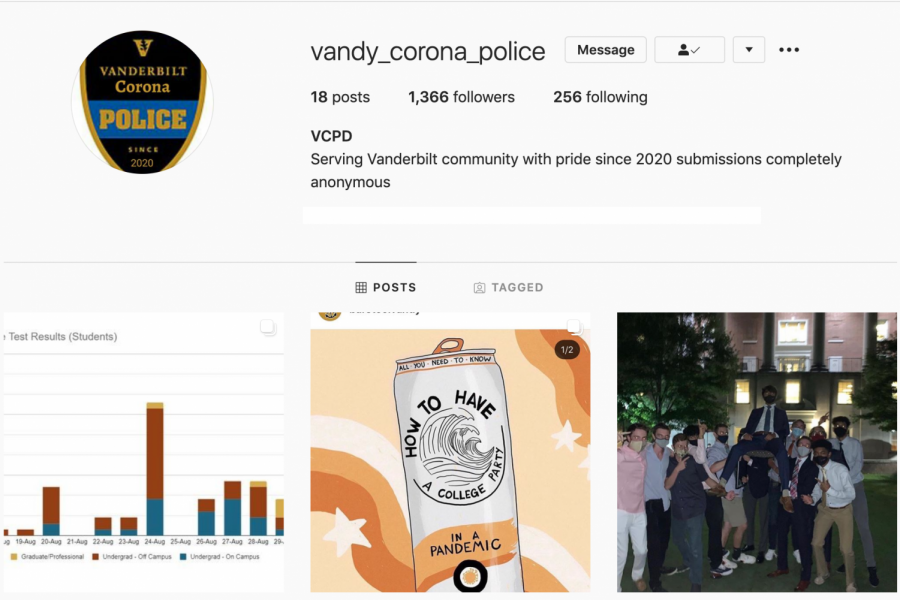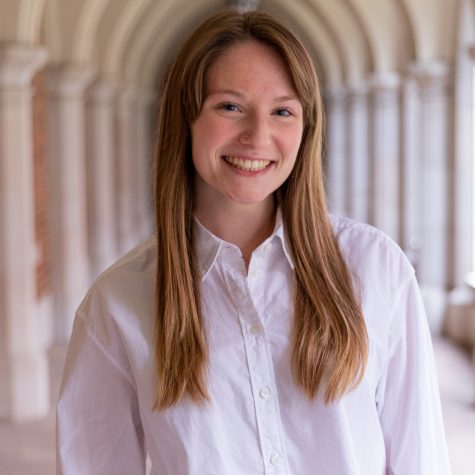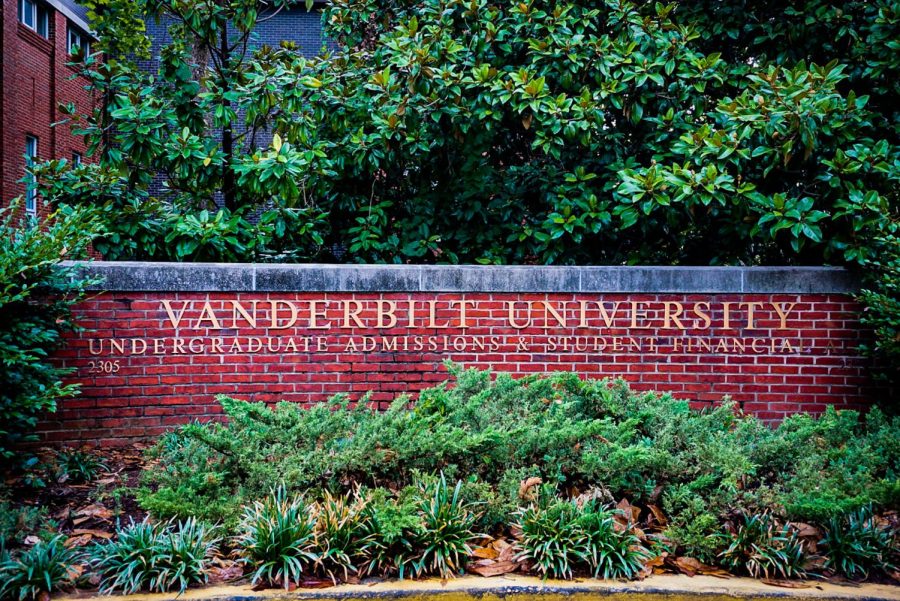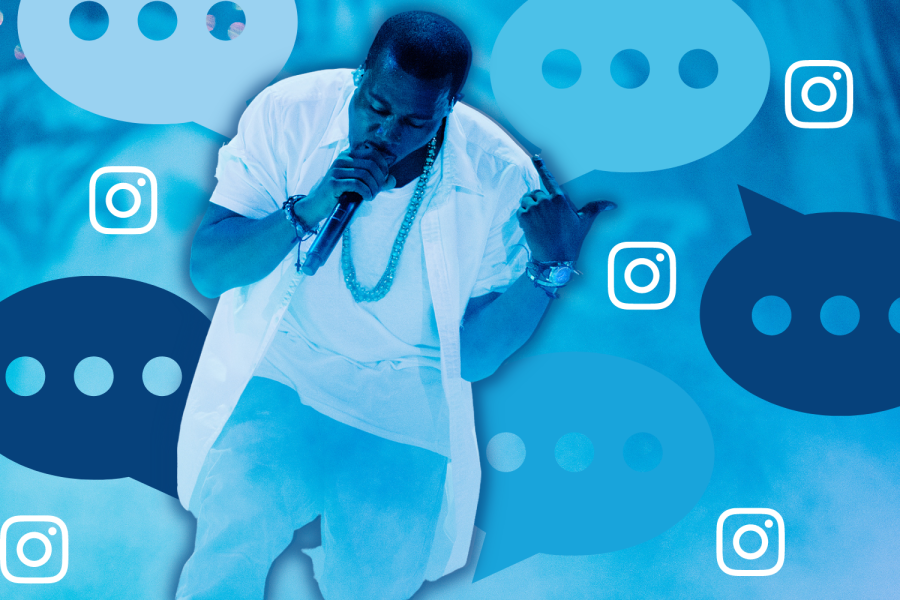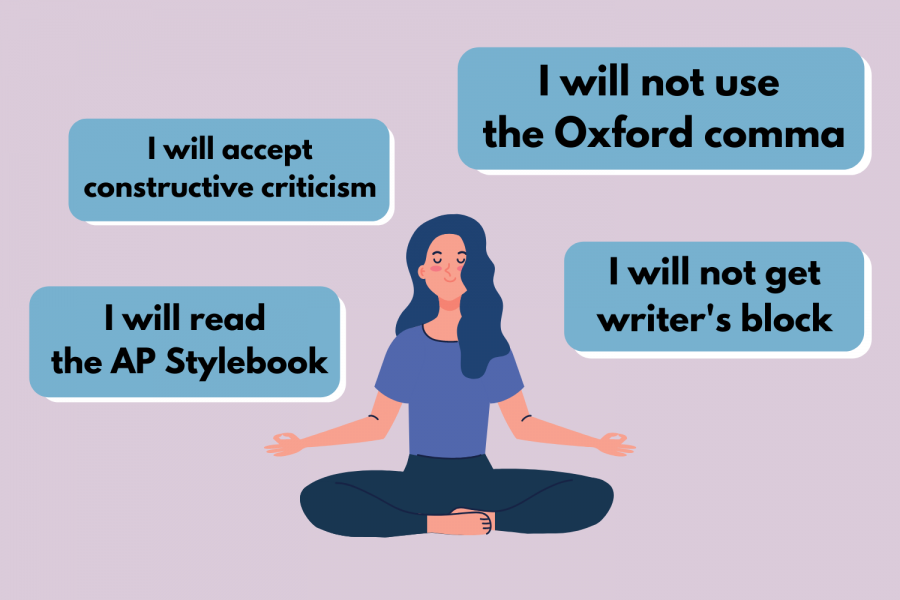In the age of “cancel culture” and public shaming, social media (or the fear thereof) can play a large role in influencing our actions—@vandy_corona_police intends to do just that. Since its creation Aug. 21, the Instagram page has 18 posts (some have since been deleted) and has amassed over 1,368 followers.
Although the private account is not affiliated with Vanderbilt University, the page features Vanderbilt students who appear to be violating the university’s COVID-19 guidelines on- and off-campus. Anyone can submit photos or videos anonymously to the page, which also features “honor roll” posts for those who adhere to social distancing and mask policies.
In a post from Aug. 26, a video shows a small group of students at Branscomb quad playing spikeball without masks. The post has over 4,200 views. The account appears to be independent from the university’s disciplinary authorities.
“I personally believe that people should be held accountable for breaking the rules, but also posting to an Instagram page just to publicly shame people isn’t the right way to go about it,” first-year Mario Machado said.
An anonymous submission to the account Aug. 22 showed Machado eating at a table outside with fellow students. When asked about it, Machado said he would have preferred if the person had told him they were uncomfortable rather than taking a video.
“Telling people when they’re doing something wrong is less passive aggressive,” Machado said. “It might be confrontational, but that’s good. It’s what we need.”
Some students argue that the account holds students accountable in a way that university enforcement hasn’t. A post shows a large gathering of students on the Martha Rivers Ingram Commons Aug. 29. The post was widely circulated on social media, and the university began an investigation into the event.
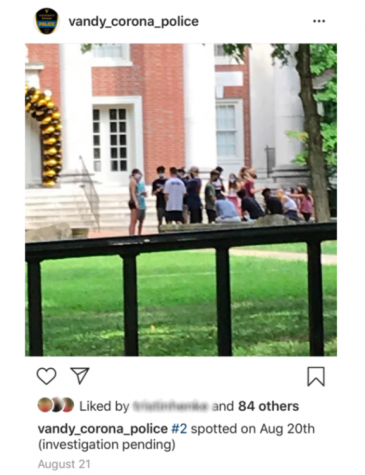
According to sophomore Joshua Hunt, the account will deter people from gathering in large groups in the future because its posts can be used as evidence against students.
“It really does make people think, ‘Okay I really shouldn’t be doing this—not just because I shouldn’t be doing it—but also because I could get in trouble for it,’” sophomore Sara Vottome said. “However, I don’t know how I feel about students taking pictures of other students.”
However, some agree that possible positive intentions or outcomes are overshadowed by the account’s way of handling policy missteps. In reality, the page is not as effective as one might think and is causing more harm than good, according to first-year Sawyer Fleishman.
“Some of the content can be helpful to give to administrators if there’s something going on, but then again a grainy picture at night of kids doing the wrong thing isn’t enough to incriminate students,” Fleishman said. “By the time the photo is taken and submitted and posted, the gathering is over, and the people might not even see it if they’re not following the account.”
Students like Machado believe the account promotes a culture of toxicity due to the nature of the anonymous submissions.
The nature of the account has also raised privacy concerns. Some students feel afraid to go out at all because they do not want to be recorded or photographed in the background of someone else violating social distancing protocols, first-year Aryana Valedon said.
“Students are afraid of getting recorded or getting their picture taken even if they are just in the background of somebody doing something wrong,” Valedon said. “It’s a very hostile way to approach the situation and creates a lot of paranoia.”
There is no longer an established level of trust among other students because everyone is suspicious of random passersby, first-year Emma Forstner said.
So far, most of the content posted to the page features first-year students. Given the focus on the class of 2024, the account has created a divide between first-years, Fleishman said.
“I think there is a divide between the people sending in the pictures and snitching on people and those who just want to meet people,” Fleishman said. “I heard a few stories of people waiting in bushes to take pictures of groups of people, and that seems a little excessive.”
According to Forstner, Vandy Corona Police makes it seem as though everyone does not have the same university-wide goal to stay on campus for the duration of the semester when that’s not the reality of the situation.
“People want to do the right thing. At a certain point, it gets excessive,” Forstner said.











